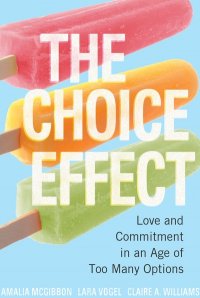The ultimate choice
End game, buster. This is the big one, the last choice. The choice that ends all choices. The choice to stop moving, stop choosing, stop wondering and stop trying, the choice to bear no responsibility any more. Yeah, you know what I’m talking about.
A colleague of mine jumped from the third floor of our office block at roughly 7:30 yesterday evening. I didn’t find out until today. I didn’t know him well, but it hit me like a brick in the stomach. Or to be precise, like a thousand broken brick shards of confused emotion launched towards me from every conceivable direction.
They told us it’s only natural to ask ourselves why, but warned that it may do more harm to us than good. I thought of all the other people I’d known who taken that final choice, or attempted it. I thought of all the times I’d contemplated it. Durkheim believed the best indicator of a (mal)functioning society was the suicide rate. There’s hardly a bigger ‘fuck you’ to the world than choosing not to live in it anymore.
I don’t know why he was unhappy. I don’t know much about his family life, or how he felt about his job. And at the end of the day, it’s almost not my business. Almost voyeuristic somehow, to be paying so much attention to caring about his personal life just because he’s dead. When I hadn’t, in his life. Why be hypocritical about it?
But it can make me ask why in a broader sense. What it means to make that final choice. And why you might be drawn to it. When I had contemplated it, it had been in a time of overpowering anguish at life and the world, and my inability to change it. And the insignificance of my anguish, and my actions, in the grand scheme of things. I was screaming my pain at the world but it couldn’t hear me. The scream was lost in a million others, a senseless wall of sound of human sadness. Suicide seemed like the loudest way to make people listen, even if I couldn’t be around to appreciate it.
I wonder if he had followed the same thought process. If that was what he was saying with that act. And I thought about the role he’d played in my life.
He was one of the two people who’d interviewed me. So that means he had at least 50% of the decision to give me a job. My ticket out of the grinding existential crisis triggered by post-graduation unemployment.
That decision changed my life. I remember getting the call. I was so fucking happy, over the moon. The intensity of it was extreme: a flooding, ridiculous ecstasy of happiness, finally knowing that the long, self-confidence-destroying hell of couch-surfing and rejected applications was over. My life was about to begin again, no longer in limbo. He was a part of creating that happiness, so powerful to be almost overwhelming, the choice he made then.
Now he’s chosen not to choose any more. To no longer try and change the misery of his world; no more effort, no more decisions, no more responsibility.
Would it have made any difference to him if he knew how much difference he had made in my life? Who knows. Maybe not. But it’s shocking to truly realise that someone who could cause so much happiness in the work that he did, could be crushed by so much sadness in himself. That he thought no more choices he could ever make could be meaningful enough or powerful enough to change that sadness.
Why should he feel so lacking in choices when allegedly we’re living in the age of more choices anyone has ever known? Why do I feel like that, so often? We live in a society which almost idolises the ideology of free choice, but often fails to acknowledge the ways of thinking and social structures which constrain us. In many ways the amount of choice and control we have, is exaggerated. But believing in choice, means responsibility. Responsibility for the consequences of your choices, and your responsibility alone. In that context, it makes any failure our own, and no one elses (See Consuming Life, by Zygmund Baumann, for a stronger analysis of this). ‘Failure’ can include not being happy. That can be hard to bear.
The impact he had on my life to him was small, just a consequence of doing his job. Next time I feel like I have no impact, no power to change, I will remember that. Remember that I never really know the impact I make on other people, with actions that seem like nothing to me at the time. It might be more than I think.

![[del.icio.us]](../wp-content/plugins/bookmarkify/delicious.png)
![[Digg]](../wp-content/plugins/bookmarkify/digg.png)
![[Facebook]](../wp-content/plugins/bookmarkify/facebook.png)
![[Google]](../wp-content/plugins/bookmarkify/google.png)
![[Reddit]](../wp-content/plugins/bookmarkify/reddit.png)
![[Technorati]](../wp-content/plugins/bookmarkify/technorati.png)
![[Twitter]](../wp-content/plugins/bookmarkify/twitter.png)
![[Email]](../wp-content/plugins/bookmarkify/email.png)


